Soft Shell Crab
Hard Shell Crab
King Crab
Dungeness Crab
Wild Caught
Farmed
Aquaculture
Live
Chilled
Frozen
Canned
Supermarkets
Online Retail
Fish Markets
Specialty Stores
North America
Europe
South America
Asia Pacific
Middle East and Africa
North America Outlook (USD Billion, 2019-2035)
North America Crab Market by Type
Soft Shell Crab
Hard Shell Crab
King Crab
Dungeness Crab
North America Crab Market by Source Type
Wild Caught
Farmed
Aquaculture
North America Crab Market by Form Type
Live
Chilled
Frozen
Canned
North America Crab Market by Distribution Channel Type
Supermarkets
Online Retail
Fish Markets
Specialty Stores
North America Crab Market by Regional Type
US
Canada
US Outlook (USD Billion, 2019-2035)
US Crab Market by Type
Soft Shell Crab
Hard Shell Crab
King Crab
Dungeness Crab
US Crab Market by Source Type
Wild Caught
Farmed
Aquaculture
US Crab Market by Form Type
Live
Chilled
Frozen
Canned
US Crab Market by Distribution Channel Type
Supermarkets
Online Retail
Fish Markets
Specialty Stores
CANADA Outlook (USD Billion, 2019-2035)
CANADA Crab Market by Type
Soft Shell Crab
Hard Shell Crab
King Crab
Dungeness Crab
CANADA Crab Market by Source Type
Wild Caught
Farmed
Aquaculture
CANADA Crab Market by Form Type
Live
Chilled
Frozen
Canned
CANADA Crab Market by Distribution Channel Type
Supermarkets
Online Retail
Fish Markets
Specialty Stores
Europe Outlook (USD Billion, 2019-2035)
Europe Crab Market by Type
Soft Shell Crab
Hard Shell Crab
King Crab
Dungeness Crab
Europe Crab Market by Source Type
Wild Caught
Farmed
Aquaculture
Europe Crab Market by Form Type
Live
Chilled
Frozen
Canned
Europe Crab Market by Distribution Channel Type
Supermarkets
Online Retail
Fish Markets
Specialty Stores
Europe Crab Market by Regional Type
Germany
UK
France
Russia
Italy
Spain
Rest of Europe
GERMANY Outlook (USD Billion, 2019-2035)
GERMANY Crab Market by Type
Soft Shell Crab
Hard Shell Crab
King Crab
Dungeness Crab
GERMANY Crab Market by Source Type
Wild Caught
Farmed
Aquaculture
GERMANY Crab Market by Form Type
Live
Chilled
Frozen
Canned
GERMANY Crab Market by Distribution Channel Type
Supermarkets
Online Retail
Fish Markets
Specialty Stores
UK Outlook (USD Billion, 2019-2035)
UK Crab Market by Type
Soft Shell Crab
Hard Shell Crab
King Crab
Dungeness Crab
UK Crab Market by Source Type
Wild Caught
Farmed
Aquaculture
UK Crab Market by Form Type
Live
Chilled
Frozen
Canned
UK Crab Market by Distribution Channel Type
Supermarkets
Online Retail
Fish Markets
Specialty Stores
FRANCE Outlook (USD Billion, 2019-2035)
FRANCE Crab Market by Type
Soft Shell Crab
Hard Shell Crab
King Crab
Dungeness Crab
FRANCE Crab Market by Source Type
Wild Caught
Farmed
Aquaculture
FRANCE Crab Market by Form Type
Live
Chilled
Frozen
Canned
FRANCE Crab Market by Distribution Channel Type
Supermarkets
Online Retail
Fish Markets
Specialty Stores
RUSSIA Outlook (USD Billion, 2019-2035)
RUSSIA Crab Market by Type
Soft Shell Crab
Hard Shell Crab
King Crab
Dungeness Crab
RUSSIA Crab Market by Source Type
Wild Caught
Farmed
Aquaculture
RUSSIA Crab Market by Form Type
Live
Chilled
Frozen
Canned
RUSSIA Crab Market by Distribution Channel Type
Supermarkets
Online Retail
Fish Markets
Specialty Stores
ITALY Outlook (USD Billion, 2019-2035)
ITALY Crab Market by Type
Soft Shell Crab
Hard Shell Crab
King Crab
Dungeness Crab
ITALY Crab Market by Source Type
Wild Caught
Farmed
Aquaculture
ITALY Crab Market by Form Type
Live
Chilled
Frozen
Canned
ITALY Crab Market by Distribution Channel Type
Supermarkets
Online Retail
Fish Markets
Specialty Stores
SPAIN Outlook (USD Billion, 2019-2035)
SPAIN Crab Market by Type
Soft Shell Crab
Hard Shell Crab
King Crab
Dungeness Crab
SPAIN Crab Market by Source Type
Wild Caught
Farmed
Aquaculture
SPAIN Crab Market by Form Type
Live
Chilled
Frozen
Canned
SPAIN Crab Market by Distribution Channel Type
Supermarkets
Online Retail
Fish Markets
Specialty Stores
REST OF EUROPE Outlook (USD Billion, 2019-2035)
REST OF EUROPE Crab Market by Type
Soft Shell Crab
Hard Shell Crab
King Crab
Dungeness Crab
REST OF EUROPE Crab Market by Source Type
Wild Caught
Farmed
Aquaculture
REST OF EUROPE Crab Market by Form Type
Live
Chilled
Frozen
Canned
REST OF EUROPE Crab Market by Distribution Channel Type
Supermarkets
Online Retail
Fish Markets
Specialty Stores
APAC Outlook (USD Billion, 2019-2035)
APAC Crab Market by Type
Soft Shell Crab
Hard Shell Crab
King Crab
Dungeness Crab
APAC Crab Market by Source Type
Wild Caught
Farmed
Aquaculture
APAC Crab Market by Form Type
Live
Chilled
Frozen
Canned
APAC Crab Market by Distribution Channel Type
Supermarkets
Online Retail
Fish Markets
Specialty Stores
APAC Crab Market by Regional Type
China
India
Japan
South Korea
Malaysia
Thailand
Indonesia
Rest of APAC
CHINA Outlook (USD Billion, 2019-2035)
CHINA Crab Market by Type
Soft Shell Crab
Hard Shell Crab
King Crab
Dungeness Crab
CHINA Crab Market by Source Type
Wild Caught
Farmed
Aquaculture
CHINA Crab Market by Form Type
Live
Chilled
Frozen
Canned
CHINA Crab Market by Distribution Channel Type
Supermarkets
Online Retail
Fish Markets
Specialty Stores
INDIA Outlook (USD Billion, 2019-2035)
INDIA Crab Market by Type
Soft Shell Crab
Hard Shell Crab
King Crab
Dungeness Crab
INDIA Crab Market by Source Type
Wild Caught
Farmed
Aquaculture
INDIA Crab Market by Form Type
Live
Chilled
Frozen
Canned
INDIA Crab Market by Distribution Channel Type
Supermarkets
Online Retail
Fish Markets
Specialty Stores
JAPAN Outlook (USD Billion, 2019-2035)
JAPAN Crab Market by Type
Soft Shell Crab
Hard Shell Crab
King Crab
Dungeness Crab
JAPAN Crab Market by Source Type
Wild Caught
Farmed
Aquaculture
JAPAN Crab Market by Form Type
Live
Chilled
Frozen
Canned
JAPAN Crab Market by Distribution Channel Type
Supermarkets
Online Retail
Fish Markets
Specialty Stores
SOUTH KOREA Outlook (USD Billion, 2019-2035)
SOUTH KOREA Crab Market by Type
Soft Shell Crab
Hard Shell Crab
King Crab
Dungeness Crab
SOUTH KOREA Crab Market by Source Type
Wild Caught
Farmed
Aquaculture
SOUTH KOREA Crab Market by Form Type
Live
Chilled
Frozen
Canned
SOUTH KOREA Crab Market by Distribution Channel Type
Supermarkets
Online Retail
Fish Markets
Specialty Stores
MALAYSIA Outlook (USD Billion, 2019-2035)
MALAYSIA Crab Market by Type
Soft Shell Crab
Hard Shell Crab
King Crab
Dungeness Crab
MALAYSIA Crab Market by Source Type
Wild Caught
Farmed
Aquaculture
MALAYSIA Crab Market by Form Type
Live
Chilled
Frozen
Canned
MALAYSIA Crab Market by Distribution Channel Type
Supermarkets
Online Retail
Fish Markets
Specialty Stores
THAILAND Outlook (USD Billion, 2019-2035)
THAILAND Crab Market by Type
Soft Shell Crab
Hard Shell Crab
King Crab
Dungeness Crab
THAILAND Crab Market by Source Type
Wild Caught
Farmed
Aquaculture
THAILAND Crab Market by Form Type
Live
Chilled
Frozen
Canned
THAILAND Crab Market by Distribution Channel Type
Supermarkets
Online Retail
Fish Markets
Specialty Stores
INDONESIA Outlook (USD Billion, 2019-2035)
INDONESIA Crab Market by Type
Soft Shell Crab
Hard Shell Crab
King Crab
Dungeness Crab
INDONESIA Crab Market by Source Type
Wild Caught
Farmed
Aquaculture
INDONESIA Crab Market by Form Type
Live
Chilled
Frozen
Canned
INDONESIA Crab Market by Distribution Channel Type
Supermarkets
Online Retail
Fish Markets
Specialty Stores
REST OF APAC Outlook (USD Billion, 2019-2035)
REST OF APAC Crab Market by Type
Soft Shell Crab
Hard Shell Crab
King Crab
Dungeness Crab
REST OF APAC Crab Market by Source Type
Wild Caught
Farmed
Aquaculture
REST OF APAC Crab Market by Form Type
Live
Chilled
Frozen
Canned
REST OF APAC Crab Market by Distribution Channel Type
Supermarkets
Online Retail
Fish Markets
Specialty Stores
South America Outlook (USD Billion, 2019-2035)
South America Crab Market by Type
Soft Shell Crab
Hard Shell Crab
King Crab
Dungeness Crab
South America Crab Market by Source Type
Wild Caught
Farmed
Aquaculture
South America Crab Market by Form Type
Live
Chilled
Frozen
Canned
South America Crab Market by Distribution Channel Type
Supermarkets
Online Retail
Fish Markets
Specialty Stores
South America Crab Market by Regional Type
Brazil
Mexico
Argentina
Rest of South America
BRAZIL Outlook (USD Billion, 2019-2035)
BRAZIL Crab Market by Type
Soft Shell Crab
Hard Shell Crab
King Crab
Dungeness Crab
BRAZIL Crab Market by Source Type
Wild Caught
Farmed
Aquaculture
BRAZIL Crab Market by Form Type
Live
Chilled
Frozen
Canned
BRAZIL Crab Market by Distribution Channel Type
Supermarkets
Online Retail
Fish Markets
Specialty Stores
MEXICO Outlook (USD Billion, 2019-2035)
MEXICO Crab Market by Type
Soft Shell Crab
Hard Shell Crab
King Crab
Dungeness Crab
MEXICO Crab Market by Source Type
Wild Caught
Farmed
Aquaculture
MEXICO Crab Market by Form Type
Live
Chilled
Frozen
Canned
MEXICO Crab Market by Distribution Channel Type
Supermarkets
Online Retail
Fish Markets
Specialty Stores
ARGENTINA Outlook (USD Billion, 2019-2035)
ARGENTINA Crab Market by Type
Soft Shell Crab
Hard Shell Crab
King Crab
Dungeness Crab
ARGENTINA Crab Market by Source Type
Wild Caught
Farmed
Aquaculture
ARGENTINA Crab Market by Form Type
Live
Chilled
Frozen
Canned
ARGENTINA Crab Market by Distribution Channel Type
Supermarkets
Online Retail
Fish Markets
Specialty Stores
REST OF SOUTH AMERICA Outlook (USD Billion, 2019-2035)
REST OF SOUTH AMERICA Crab Market by Type
Soft Shell Crab
Hard Shell Crab
King Crab
Dungeness Crab
REST OF SOUTH AMERICA Crab Market by Source Type
Wild Caught
Farmed
Aquaculture
REST OF SOUTH AMERICA Crab Market by Form Type
Live
Chilled
Frozen
Canned
REST OF SOUTH AMERICA Crab Market by Distribution Channel Type
Supermarkets
Online Retail
Fish Markets
Specialty Stores
MEA Outlook (USD Billion, 2019-2035)
MEA Crab Market by Type
Soft Shell Crab
Hard Shell Crab
King Crab
Dungeness Crab
MEA Crab Market by Source Type
Wild Caught
Farmed
Aquaculture
MEA Crab Market by Form Type
Live
Chilled
Frozen
Canned
MEA Crab Market by Distribution Channel Type
Supermarkets
Online Retail
Fish Markets
Specialty Stores
MEA Crab Market by Regional Type
GCC Countries
South Africa
Rest of MEA
GCC COUNTRIES Outlook (USD Billion, 2019-2035)
GCC COUNTRIES Crab Market by Type
Soft Shell Crab
Hard Shell Crab
King Crab
Dungeness Crab
GCC COUNTRIES Crab Market by Source Type
Wild Caught
Farmed
Aquaculture
GCC COUNTRIES Crab Market by Form Type
Live
Chilled
Frozen
Canned
GCC COUNTRIES Crab Market by Distribution Channel Type
Supermarkets
Online Retail
Fish Markets
Specialty Stores
SOUTH AFRICA Outlook (USD Billion, 2019-2035)
SOUTH AFRICA Crab Market by Type
Soft Shell Crab
Hard Shell Crab
King Crab
Dungeness Crab
SOUTH AFRICA Crab Market by Source Type
Wild Caught
Farmed
Aquaculture
SOUTH AFRICA Crab Market by Form Type
Live
Chilled
Frozen
Canned
SOUTH AFRICA Crab Market by Distribution Channel Type
Supermarkets
Online Retail
Fish Markets
Specialty Stores
REST OF MEA Outlook (USD Billion, 2019-2035)
REST OF MEA Crab Market by Type
Soft Shell Crab
Hard Shell Crab
King Crab
Dungeness Crab
REST OF MEA Crab Market by Source Type
Wild Caught
Farmed
Aquaculture
REST OF MEA Crab Market by Form Type
Live
Chilled
Frozen
Canned
REST OF MEA Crab Market by Distribution Channel Type
Supermarkets
Online Retail
Fish Markets
Specialty Stores


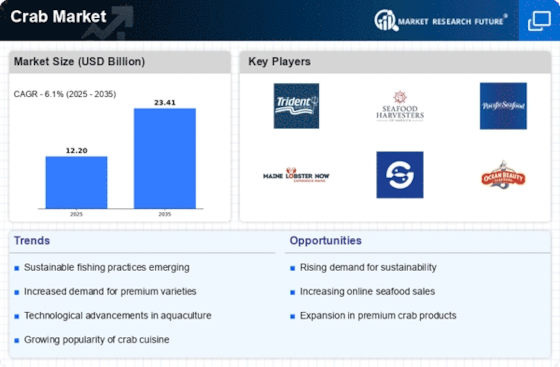
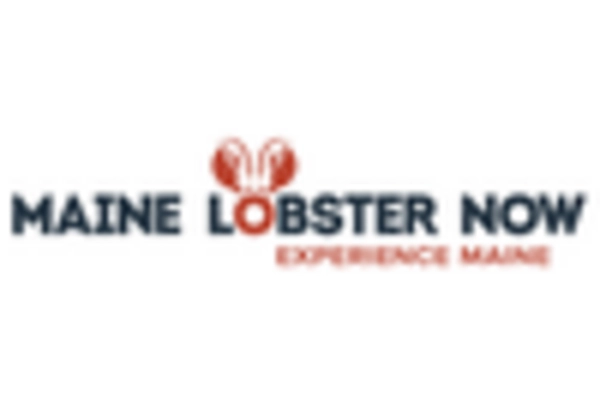
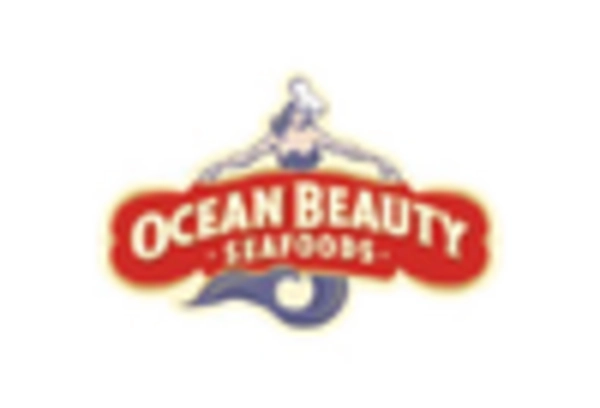
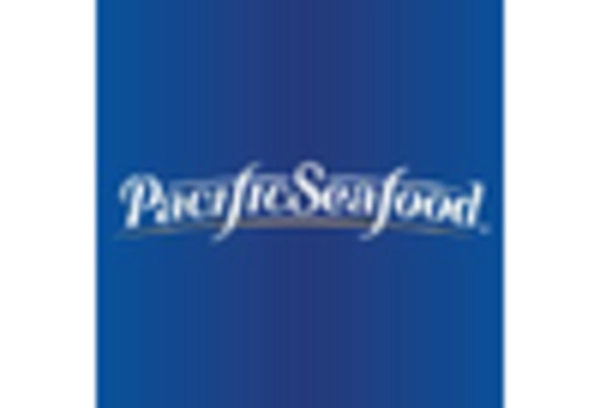
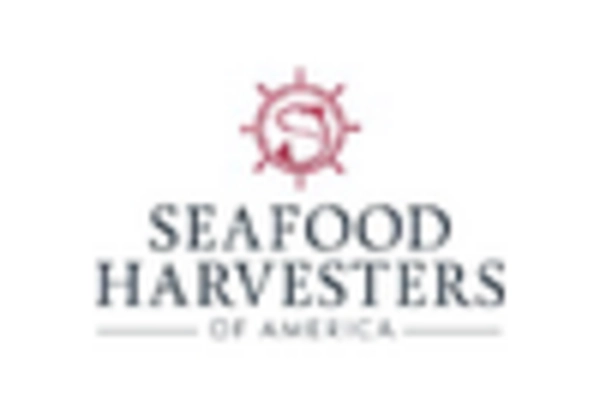
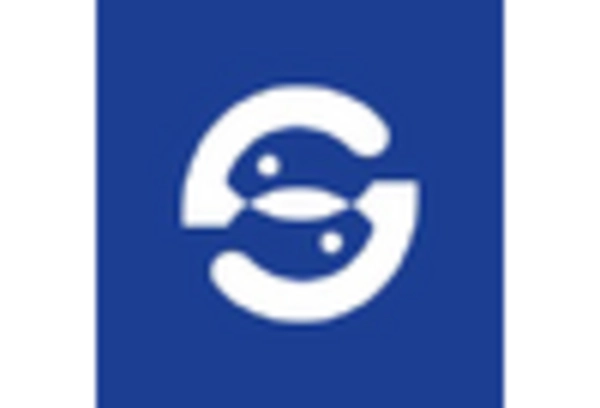
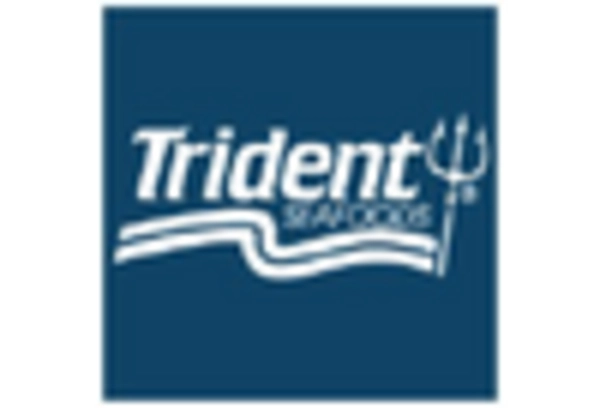









Leave a Comment